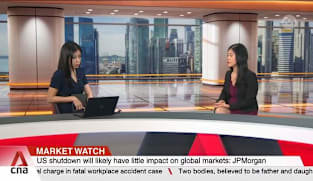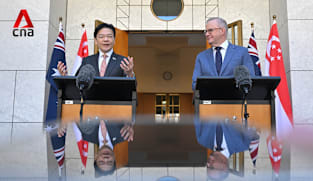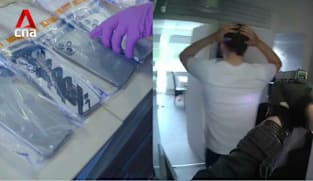Louis Chua on Bills to strengthen Singapore’s anti-money laundering regime
Singapore must send a clear message to the world that it is not a haven whose financial system can be easily exploited, said MP Louis Chua in Parliament on Tuesday (Jul 2). He said the discovery of one of the world’s biggest money laundering operations in Singapore in the past year “shocked and captivated” people here and abroad, and that the term “Singapore-washing” has even been coined. He raised several concerns about a Bill proposing tighter regulation of corporate service providers (CSPs). For example, it was decided not to proceed with a proposal to require CSPs to ensure they appoint nominee directors who satisfy prescribed training requirements if they hold more than a legally prescribed number of nominee directorships. This was “a lost opportunity”, said Mr Chua. He asked if CSPs will be given training and resources to assess if nominee directors are “fit and proper”, so that their assessments are aligned with legislation and the latest anti-money laundering developments. Mr Chua also noted that among the thousands of CSPs in Singapore, many could be very small entities dominated by one or two customer groups. He asked if their independence of judgement might be “clouded” by commercial considerations and whether CSPs will be required to declare their customer concentration risk.
Singapore must send a clear message to the world that it is not a haven whose financial system can be easily exploited, said MP Louis Chua in Parliament on Tuesday (Jul 2). He said the discovery of one of the world’s biggest money laundering operations in Singapore in the past year “shocked and captivated” people here and abroad, and that the term “Singapore-washing” has even been coined. He raised several concerns about a Bill proposing tighter regulation of corporate service providers (CSPs). For example, it was decided not to proceed with a proposal to require CSPs to ensure they appoint nominee directors who satisfy prescribed training requirements if they hold more than a legally prescribed number of nominee directorships. This was “a lost opportunity”, said Mr Chua. He asked if CSPs will be given training and resources to assess if nominee directors are “fit and proper”, so that their assessments are aligned with legislation and the latest anti-money laundering developments. Mr Chua also noted that among the thousands of CSPs in Singapore, many could be very small entities dominated by one or two customer groups. He asked if their independence of judgement might be “clouded” by commercial considerations and whether CSPs will be required to declare their customer concentration risk.



















